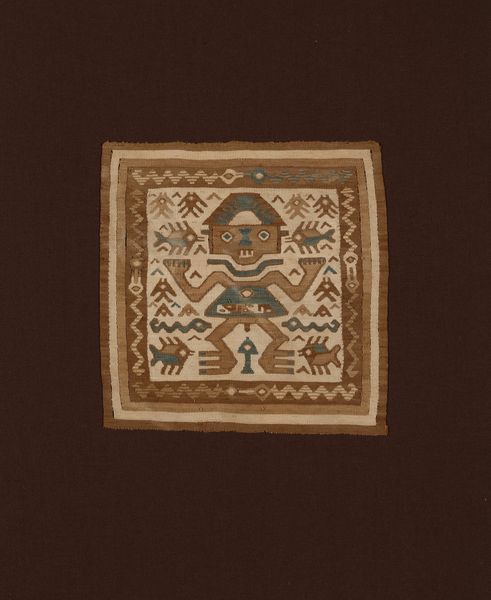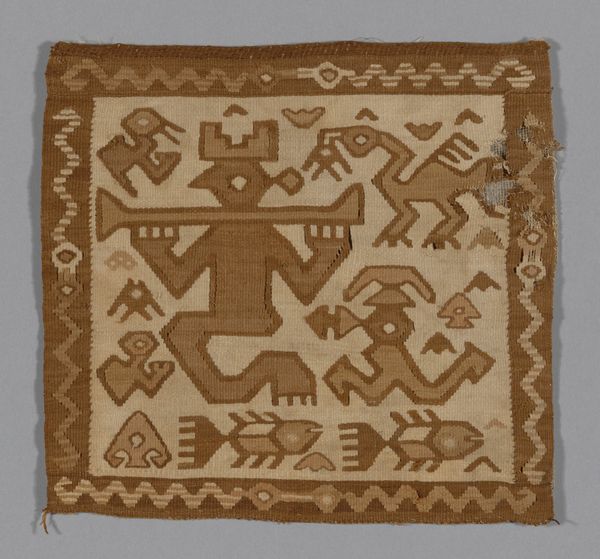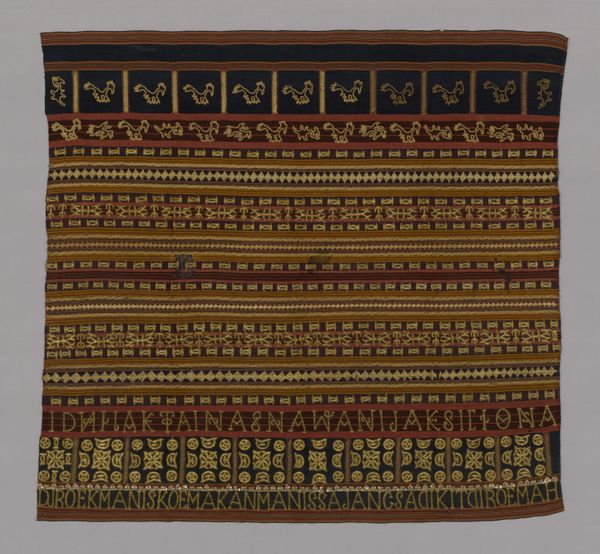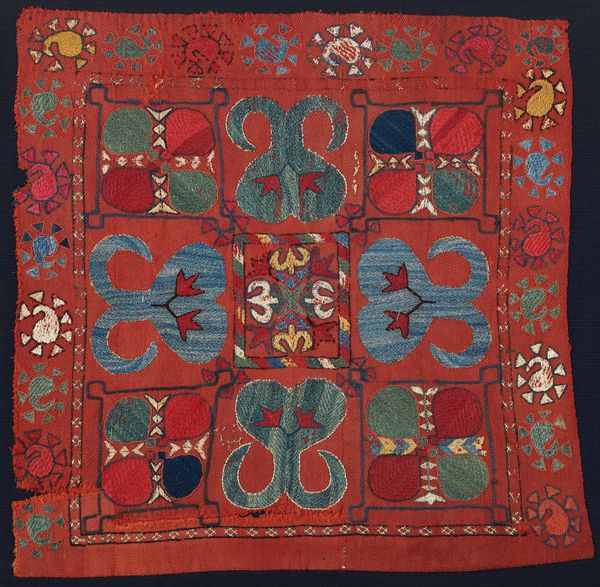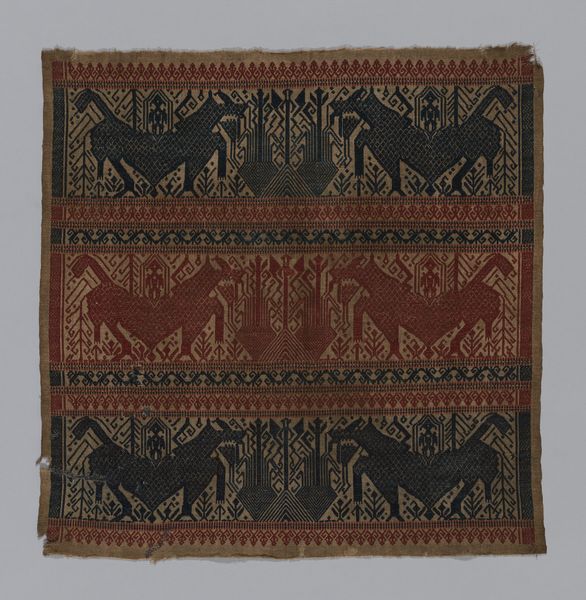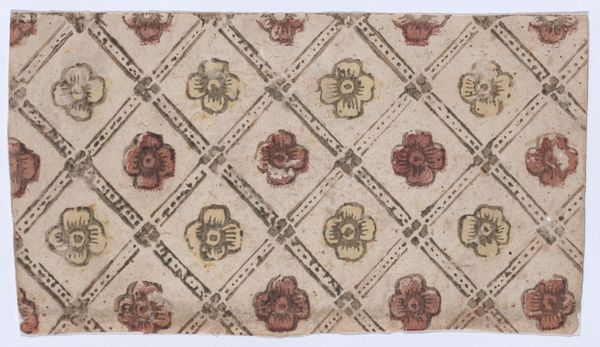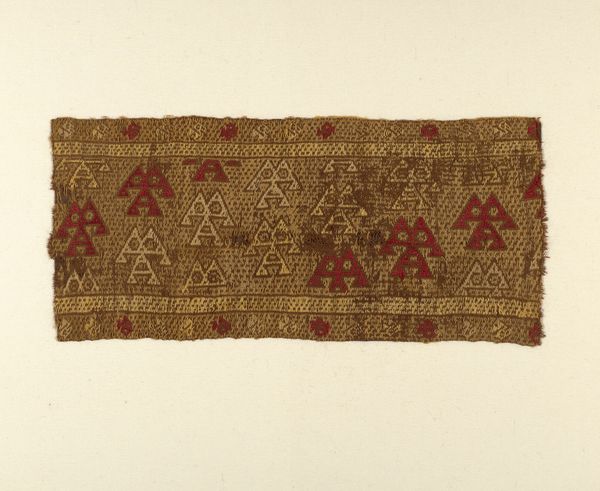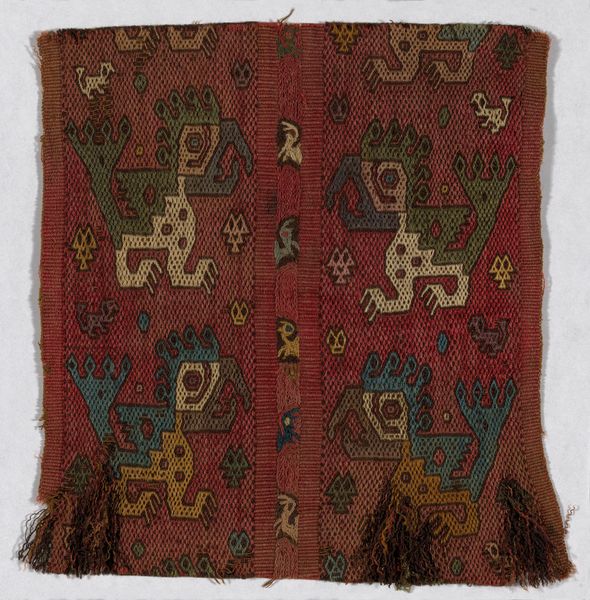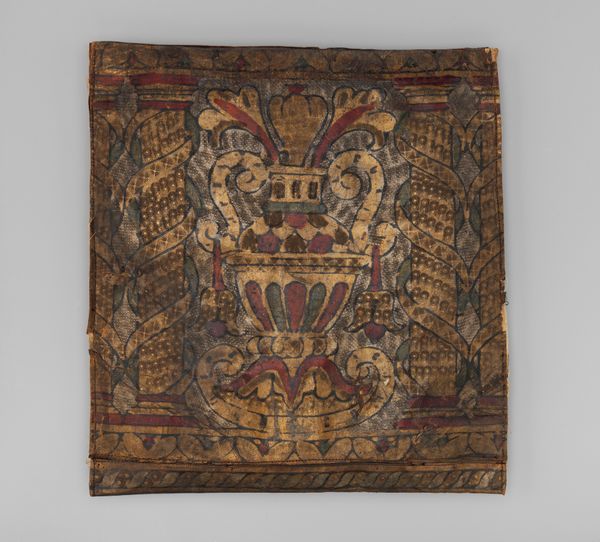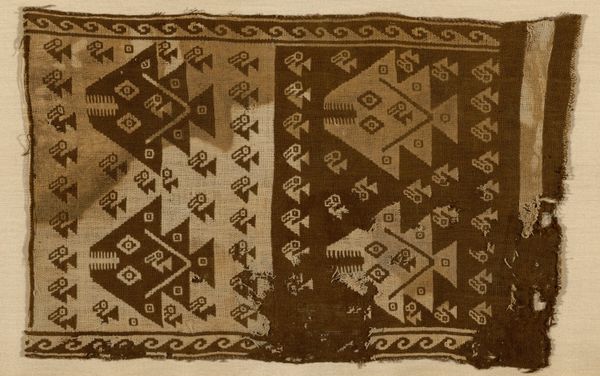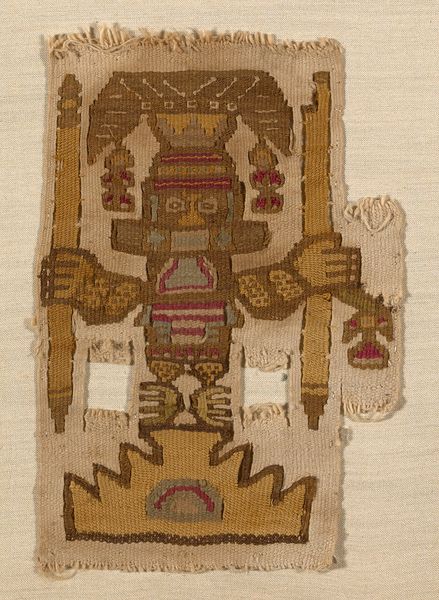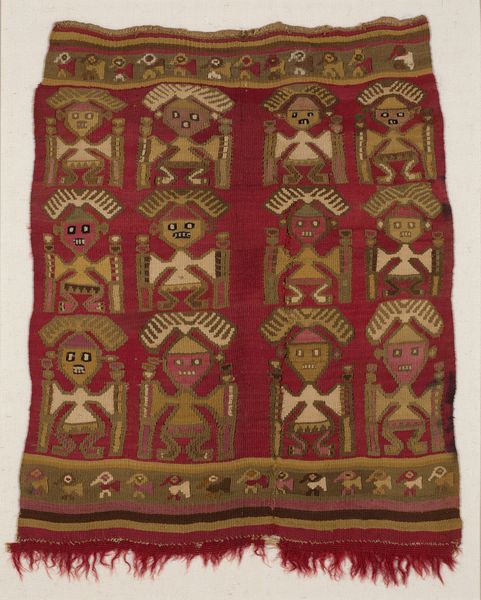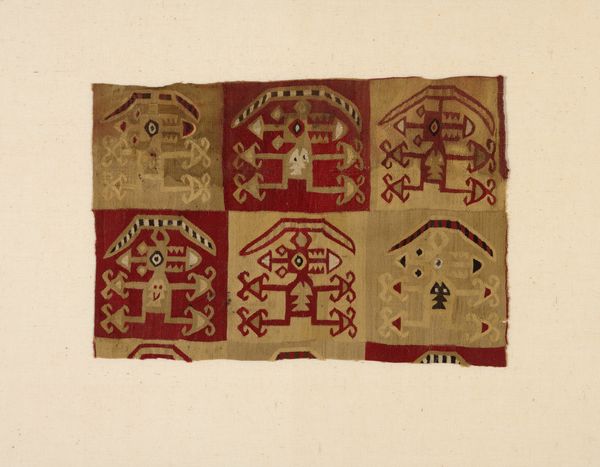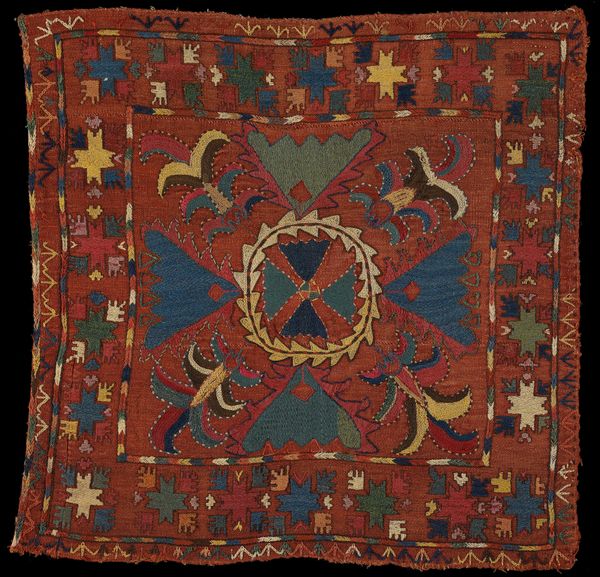
weaving, textile
#
weaving
#
textile
#
figuration
#
form
#
geometric
#
indigenous-americas
Dimensions: 34.6 × 35.2 cm (13 5/8 × 13 7/8 in.)
Copyright: Public Domain
This woven panel of cotton and wool was made by an artist of the Rimac culture in ancient Peru. Textiles like this weren't just decorative; they were vital forms of communication and social expression. The central figure is likely a powerful deity, maybe even the creator god. Notice the stylized birds and smaller figures surrounding the god, which possibly represent attendants or other divine beings in the Rimac pantheon. What did these figures mean to the people who saw them every day? What social rituals accompanied the creation and use of this panel? Historical understanding can be enriched through archaeological reports, ethnographies, and studies of similar textiles, as these help us to unlock the secrets of this complex visual language. By examining such artifacts within their cultural and historical contexts, we gain insight into the beliefs, values, and social structures of the societies that created them.
Comments
No comments
Be the first to comment and join the conversation on the ultimate creative platform.
